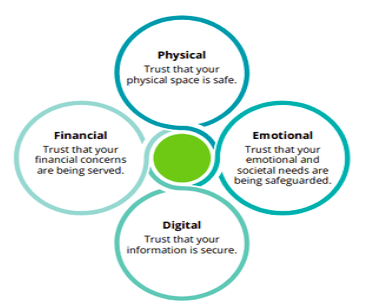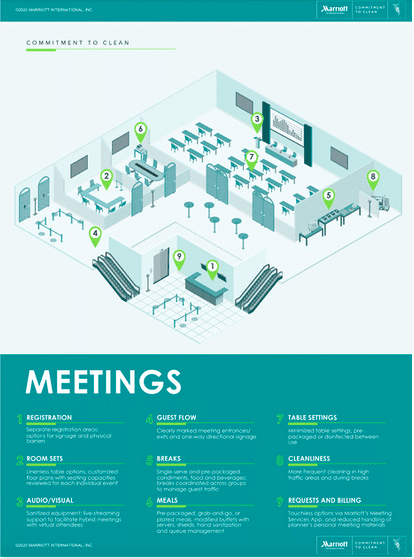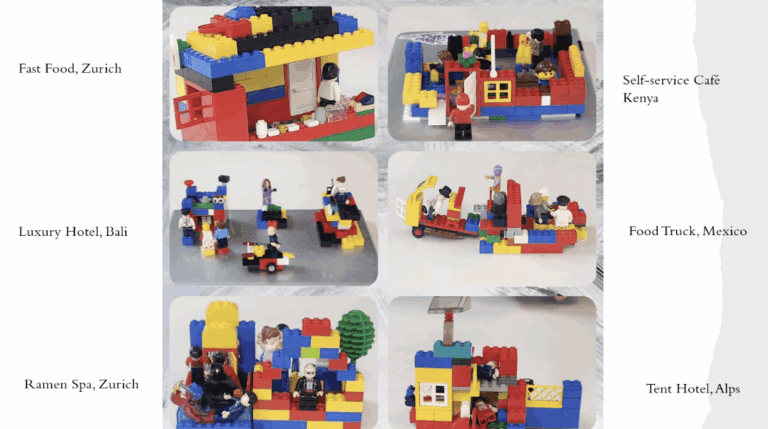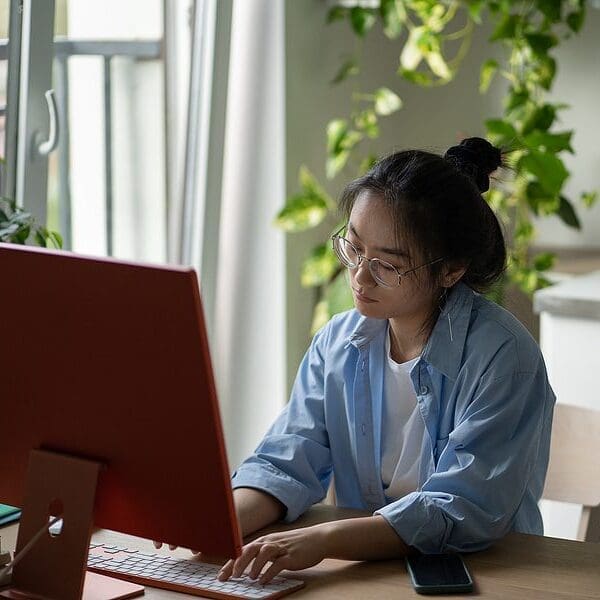 The global COVID-19 pandemic has brought a dramatic shift in guests’ needs and wants. To respond effectively to them, hotel businesses need to reimagine their customer experience and find new ways how to get trust back.
The global COVID-19 pandemic has brought a dramatic shift in guests’ needs and wants. To respond effectively to them, hotel businesses need to reimagine their customer experience and find new ways how to get trust back.
According to the Deloitte survey, it is the trust that can help organizations to recover and rebuild in the near term, and thrive in the long term. To encourage people to get out of the house and travel again, hoteliers must adopt strict cleaning policies as 72% of respondents said it’s extremely important to see them in every place they visit.

Major hotel chains have already developed new health and safety standards to demonstrate their commitment to cleanliness, namely Hilton’s CleanStay initiative or Marriott Cleanliness Council. And this strategy worked well for them. According to the 2020 BTN Hotel Brand Survey, corporate travelers rated Marriott and Hilton as the top brands. They scored highest for having clean, appealing, and well-maintained accommodations.
Beyond adopting hygiene strategy, we’re seeing a creation of a new category “bleisure” — a blend of business and leisure. People are increasingly tired of working from home and look for a place to spend a few hours in peace and quiet. To meet the customers’ demand, hoteliers are developing new initiatives like “Working from the Hotel” (WFH), already launched by Accor, Hilton, and Marriott.
As of now, many hoteliers consider business travelers as a ‘stepping stone’ in their recovery. For example, Marriott organized a hybrid virtual and in-person event “Connect with Confidence” at The Ritz-Carlton, Tysons Corner in Virginia to present its reimagined processes and meeting spaces.
In today’s environment, identifying new revenue streams and applying intelligent solutions have become a top priority for hoteliers. Below, we will deep-dive into these income sources to address the current concerns of the hotel industry and help find some business ideas for making extra money.
Focus on business travelers and remote workers
Almost everyone now works away from an office, and experts expect that hybrid models of remote work will remain after the COVID-19 passes. According to the NABE survey, nearly 80% of people said their companies had adopted some form of remote work post-crisis. It is already known that Google will keep its employees home until the summer of 2021 while Facebook and Twitter allowed their staff to work remotely permanently.
As many people are tired of working in the same place day in and day out, they started using hotels as day offices or even living there for weeks and more while working. If accommodation providers adapt to remote workers’ needs, they will be able to compensate for the loss of income due to the decline in leisure travelers and short-stay guests. Here is how to achieve this.
- Day-use bookings and WFH packages
Day-use bookings are nothing new in the hotel industry. Yet, the coronavirus pandemic propelled it to a whole new level. Big hotel chains like Accor, Hilton, Marriott, and Hyatt are now turning to the Work from the Hotel (WFH) strategy to counter the slump in travel by attracting remote workers.
The WFH concept has a number of benefits for business people as working from home is not always appropriate for them, while the comfort and the calm of a hotel room can fill the need for a suitable working environment. Some hotels go even further and adapt their room equipment to meet the requirement of the remote worker. For example, the Waldorf Hilton Hotel has partnered with Herman Miller, a luxury furniture design company, to offer guests ‘Work from The Waldorf’ package. In addition to the room, customers get access to a private and interconnecting luxury office space with premium WIFI, a full HD monitor, keyboard, mouse, microphone, flip chart, and full stationery, etc.
- Coworking spaces to address the workspitality trend
Coworking is in demand in post-COVID-19 time. So hoteliers try to capture some of that demand and reimagine their spaces and services for a slice of this market. For example, Accor is creating flexible and community-based coworking spaces with accessible equipment. Also, the chain promotes cross-selling through its loyalty program. It provides guests with the opportunity to work at any of the affiliated Accor partner hotels.
- Hybrid virtual meetings spaces, in-person conferences, and events
Every event that happens today is either online or mixed as there are gathering limits. Virtual and hybrid meetings become the norm and are expected to have long-term effects.
Maggie Weaver, director of marketing for the Hilton Sandestin Beach Golf Resort & Spa, said in the interview for Forbes, “The biggest trend we’re seeing these days is in hybrid meetings, where some attendees join in person and others are looped in virtually.”
Already mentioned “Connect with Confidence” event by Marriott gave us insights into how hybrid virtual and in-person event approach works:
- A face mask, hand sanitizer, and other individually packaged amenities for each in-person attendee
- A preview of the event area setup
- Digital registration and pre-selection of “Sanctuary Seats”
- Color-coded wristbands to showcase each attendee’s level of comfort (red for “please keep your distance;” yellow for “respect my space;” and green for “elbow bumps welcome”)
- Individual lunch solutions and options for in-person attendees to dine solo, with one, two, or three people at their table, as well as a food delivery credit for virtual attendees.
- Curated virtual-only content and multiple camera views for virtual attendees to enhance the hybrid experience, real-time interactive discussion and polling questions, virtual games with rewards, Q&A sessions for both virtual and in-person attendees.

Source: https://www.hospitalitynet.org/photo/73047706.html
- Ancillary services
In addition to day-use bookings, hotels can sell day-use services. Locals may spend a day at the swimming pool, visit a fitness room or spa. There are at least several extra services accommodation providers can offer to open a new range of potential revenue. Based on the research, ancillary services can contribute around 20% to a hotel’s bottom line. Hospitality business owners can sell services through packages, create attractive deals, and make services available to all guests easily with Hotel Guest App.
- Сovid status widget on your website
Hoteliers now need to make consistent efforts to create a safe environment and demonstrate cleaning applications. For 80% or more of customers, visible mechanisms are either most or somewhat important. The covid status badge from HotelFriend can provide guests with what they need. It can easily and visually inform potential customers that both the location and hotel are safe, as well as all measures are in place.
Such a widget helps engender a sense of safety and cleanliness amongst guests and thus, enhance trust and pique their interest.
- Collaboration with local communities
In the post-coronavirus world, it’s very important to form partnerships with local small businesses. For example, Hyatt hotels introduced the Hyatt Loves Local initiative which is aimed at enriching the travel experience and helping strengthen local communities that have been impacted by COVID-19. Now, the Hyatt’s Hotel Revival Baltimore is buying all its toilet paper only from West Baltimore-based Lor Tush. In such a way, it kills two birds with one stone: makes its operations more resilient by providing sustainable toilet paper made of 100% bamboo and supports local business.
- Contactless ordering and payment technology
In the time of social distancing, adopting contactless ordering and payment technology in the hotel does more than just keeping the doors open. It provides additional layers of security, as well as delivers enhanced customer experience, streamlines operations, and increases throughput. 73% of customers admit that their experience is improved thanks to contactless technology. More than ever, people expect seamless and a fully contactless experience. And the demand for such options will only rise.
- Increased bookability through selling hotel rooms via 200+ channels with flexible pricing
The coronavirus pandemic has emptied hotels and caused closures, layoffs, and cuts of revenue. To recover, hoteliers need to find more ways to encourage and facilitate rebookings, increase their discoverability, availability, and “bookability”. However, 93% of accommodations across the world are not available to book online in real-time, which leads to limited visibility and discoverability. To function efficiently in the new normal, hoteliers must adopt hotel reservation software as keeping in step with the times is a necessary condition for hotel businesses who want to be more visible to customers, stay relevant, and grow.
- A bigger role of the hotel restaurant in the new normal
Hoteliers can’t count on indoor dining only. It’s time to turn a restaurant into another source of revenue if it hasn’t been done yet. The following steps can help:
- optimize carryout and drive-through operations;
- update the menu and pricing and use a paperless digital menu;
- rethink restaurant layout, offer several dining options (e.g., solo, two, three people at the table), flow, staffing, and standard operating procedures;
- improve digital interaction and communication through the HotelFriend Concierge App, loyalty programs, etc;
- negotiate longer-term agreements with third-party delivery companies and suppliers of foodstuffs, packaging and paper goods, restaurant equipment, etc.
We see how big chains and well-known hotels adapt to the new reality within their sector and remain relevant. However, there is always something there that can be missed.
The way ahead
Successful hoteliers are taking things far beyond wearing masks and marking social distancing signs in the lobbies. They’re developing initiatives, looking for creative ideas, adopting environmentally-friendly contactless tech solutions, and promoting everything they do to attract guests.

















